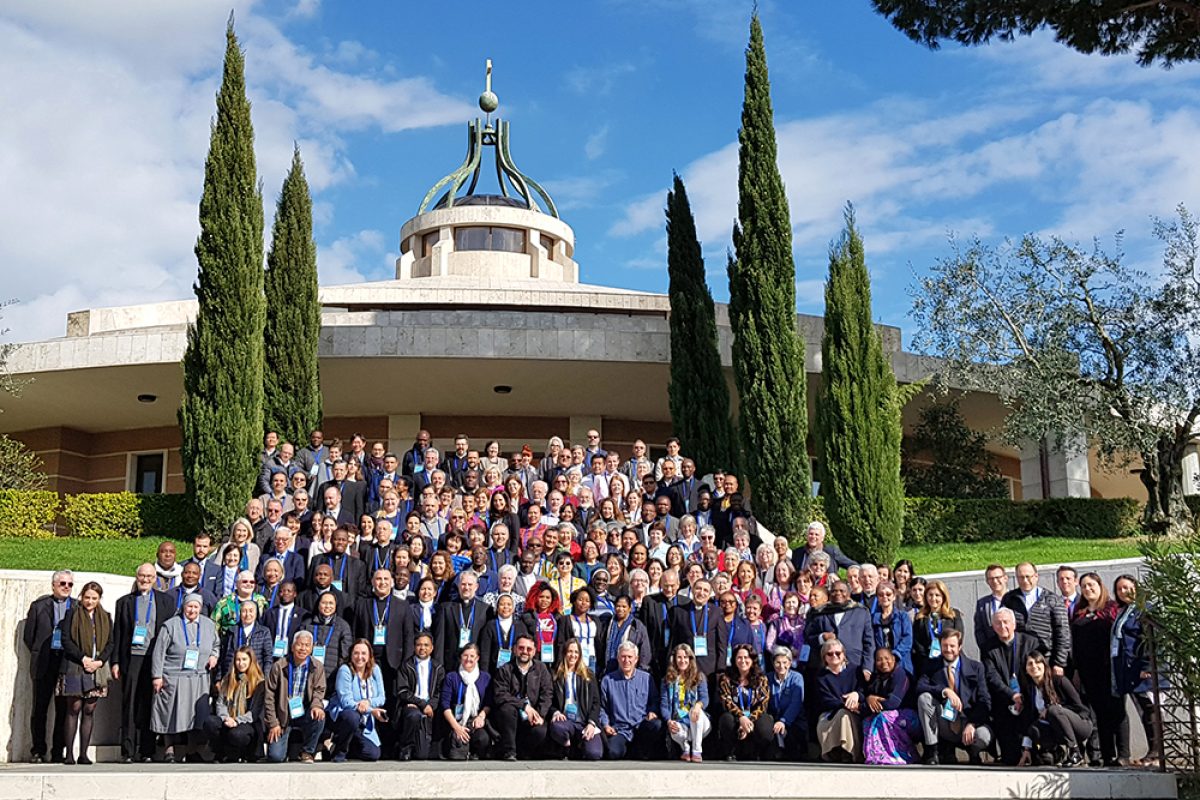The Catholic Church Gets Ready to Step up the Fight Against Human Trafficking

An international conference on trafficking in persons called for greater understanding of the phenomenon and coordinated actions to eradicate it.
Human trafficking is one of the “most dramatic manifestations” of the “commodification of the human person,” Pope Francis told participants at an International Conference on Human Trafficking held in Rome from 9 to 11 April. It not only “disfigures the humanity of the victim” but also “dehumanizes those who perform it,” the Holy Father said, and as such “seriously damages humanity as a whole.”
Convened by the Migrants and Refugees Section of the Dicastery for Promoting Integral Human Development, the international conference focused on practical means to implement the new Pastoral Orientations on Human Trafficking.
“We need to listen to those directly affected and hear not only about their negative experiences, but also about their strengths and capacity to revive themselves and live a new life,” said Msgr. Robert J. Vitillo, Secretary General of the International Catholic Migration Commission (ICMC), in offering closing reflections on the conference’s last day.
Msgr. Vitillo warned participants not to “risk becoming so convinced of the expertise assembled in our respective organizations that we ignore the much more reality-based skills and resilience that migrants and refugees, including those who have been trafficked, have achieved.”
Some 200 participants including bishops, priests, religious men and women, project coordinators and pastoral agents, representatives of Catholic organizations and foundations and trafficking experts from around the world attended the conference, which culminated in a private audience with Pope Francis.
The gathering aimed at exchanging experiences, points of view and effective practices in the Church’s ministry in this area, and asked questions about the particular situation of women and children.
“The numerous initiatives that place you in the front line in preventing trafficking, protecting survivors and prosecuting perpetrators are worthy of admiration,” Pope Francis told participants. “Much has been done and is being done,” he added, “but there remains much yet to do.” The Holy Father encouraged participants to coordinate their initiatives and to work together with political and social actors.
The ICMC delegation included Governing Committee members Msgr. Ruperto Santos of the Philippines and Fr. Jaison Vadassery Joseph of India, Secretary General Msgr. Robert J. Vitillo, Director of Policy Stéphane Jaquemet, Deputy Director of Operations Cristina Palazzo, Head of U.S. Liaison Office Limnyuy Konglim and Policy Officer Mantalin Kyrou.
A crime against humanity
Released last January, the Pastoral Orientations on Human Trafficking were drawn up by the Vatican’s Migrants and Refugees Section and approved by Pope Francis. They provide in-depth insight into the phenomenon of human trafficking, which the Holy Father has called a “crime against humanity.”
“One of the darkest aspects of contemporary history, human trafficking victimizes millions of people all over the world,” states the new publication. Among its victims are the most vulnerable in society, including women, children, the disabled, the poorest and those who come from difficult family and social situations.
Human trafficking takes different forms, including sexual exploitation, forced marriage, slave labor, servitude, forced begging, organ-harvesting and reproductive exploitation among others.
Examining ten dimensions of this complex phenomenon as defined by international law, the new resource outlines a framework for the Church to respond. Its ten chapters explore the causes of human trafficking and why it persists today. They also examine how it operates and why it remains hidden from public view.
The new resource responds to Pope Francis’ resolve that “the Catholic Church intends to intervene in every phase of the trafficking of human beings.” Its development took six months of church-wide consultation with leadership, scholars, and organizations working in the field.
Invited by the Vatican’s Migrants and Refugees Section, the ICMC contributed insights for the resource based on its past and present experience in responding to survivors of trafficking and of sexual and gender-based violence, in the development of the resource.
The hope is that the new resource will motivate and inspire the Church’s anti-trafficking ministries in dioceses, parishes, religious congregations, schools, universities, and other organizations. The guidelines will also be useful as key messages for use in pastoral and educational work.
- Read Pope Francis’ address to conference participants (in English) or watch it (in Italian)
- Read Msgr. Vitillo’s closing reflections
- Read and listen to Msgr. Vitillo’s interview by Vatican News
- Read the Pastoral Orientations on Human Trafficking in several languages
- Read the conclusions and proposals of the conference’s working groups
- Learn more about the conference and contribute your ideas for the implementation of the Pastoral Orientations on Human Trafficking here